Nordic Noir, Beloved Trolls, Dark Absurdity, and More
Elizabeth DeNoma Recommends a Dozen Great Books from Scandinavia
I’ve been captivated by Nordic culture since I was an exchange student outside Gothenburg, Sweden, in the 80s, eventually going on to study literature abroad at the University of Uppsala and then getting a PhD in Scandinavian Languages and Literature at the University of Washington. During the course of my education, few people I knew outside the academy read much Nordic literature in translation, and my interest in the region was quirky and mysterious to folks who hadn’t caught the same bug. Imagine my surprise when Stieg Larsson’s The Girl with the Dragon Tattoo broke through internationally in English in 2008, a few years after I’d finished defending my dissertation. It was a bit surreal to suddenly see the attention of the literary world focused on a region my colleagues and I had spent so much time writing and thinking about, not completely unlike seeing your favorite indie band explode into global ubiquity.
The Stieg Larsson craze brought much-deserved attention to Nordic Noir, with English translations of Jo NesbØ, Camilla Läckberg, Viveca Sten, and Henning Mankell, to name a few, finding devoted fandoms around the world. But Nordic reads aren’t just “noir”—below I share some favorites across genres.
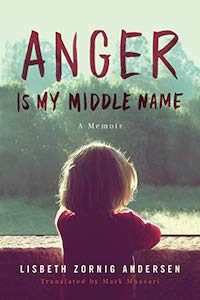
Anger Is My Middle Name by Lisbeth Zornig Andersen, translated by Mark Mussari
If you loved Educated and The Glass Castle as much as I did, you’ll be inspired by this forthcoming memoir from equally heroic real-life Lisbeth Zornig Andersen, which shows us what it was like to grow up in what she terms “underworld Denmark”: Andersen, along with her three older brothers, ricocheted between state care, foster care, and stints with their chemically dependent mother and stepfather, revealing the plight of marginalized children in one of the world’s richest and oft-touted “happiest” societies. Almost through sheer force of will, Andersen succeeded academically and in a career in IT, ultimately being tapped to chair the Danish National Council for Children. I knew how universal this book was when a friend of the translator exclaimed tearfully, “Lisbeth is my hero!”
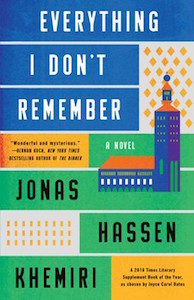
Everything I Don’t Remember by Jonas Hassen Khemiri, translated by Rachel Willson-Broyles
Playwright and novelist Jonas Hassen Khemiri won the August Prize (Sweden’s highest literary honor) for this scathingly funny puzzle of a novel that reconstructs the last days prior to a fatal car crash that could have been simply an accident, but also possibly suicide. Khemiri is simply a master—his work grippingly investigates the ramifications of cutural homogeneity, of individual and cultural memory, power, and of course, love.
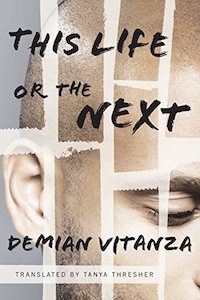
This Life Or The Next by Demian Vitanza, translated by Tanya Thresher
A spiritual cousin to Khemiri is This Life or the Next, a one-sided prison interview with a Norwegian-born jihadist as he tries to justify leaving his country to join the radical islamist movement in Syria. Because the reader only sees one side of the interview and isn’t privy to the motivations of all the parties involved, we can’t help trying to fill in the blanks, ultimately identifying with this disillusioned man we might not find otherwise sympathetic.
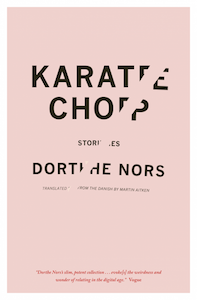
Karate Chop by Dorthe Nors, translated by Martin Aitken
Everything by Danish author Dorthe Nors is unforgettable, but especially Karate Chop, a collection of short stories that portray points of disconnection and self-delusion in all their absurdity in contemporary life. An absolute must-read for short story fans, these are perfectly polished gems.
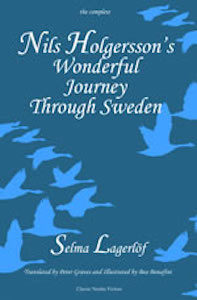
Nils Holgersson’s Wonderful Journey through Sweden by Selma Lagerlöf, translated by Peter Graves
My love of Scandinavian literature probably began with Selma Lagerlöf, the first woman and first Swede to win the Nobel Prize for literature. Lagerlöf helped establish the National Romantic style, and was an inspiration to seminal early film makers like Victor Sjöström and Mauritz Stiller, who used her novels as source material for their highly acclaimed silent era work. It always surprises me how many European authors I currently work with are familiar with Lagerlöf, either her children’s book Nils Holgersson’s Wonderful Journey Through Sweden (a geography text she wrote that was used by Swedish schools and translated widely around the world) or her classic works like The Saga of Gösta Berling. Just over the summer, I was working with an author who confided in me that she’d named her company after one of Lagerlöf’s books that had influenced her.
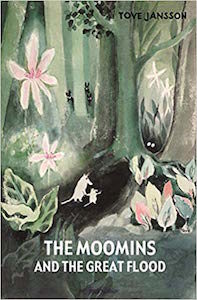
The Moomins and the Great Flood by Tove Jansson, translated by David McDuff
Finland also produced some incomparable children’s literature, with Tove Jansson’s iconic Moomintroll books—about a family of trolls—having reached an incredible level of international popularity. Funny, smart, subversive, and proto-feminist, with a noticeably Nordic relationship with nature, the characters journey through difficult emotional landscapes toward resolution. In Jansson’s world, everyone finds a place to belong.
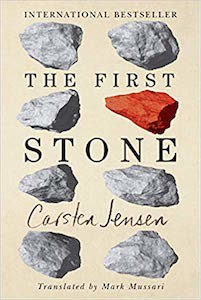
The First Stone by Carsten Jensen, translated by Mark Mussari
Danish icon Carsten Jensen first came to prominence with English language readers with We, the Drowned in 2012. His latest work in translation, The First Stone, is a magnum opus, with surprising plotting and detailed, richly drawn characters that brings readers into the nitty gritty of what life as part of the international forces stationed in Afghanistan is like—in all its depth and chaos. The New York Times praised its “taut depictions of war and a quasi-Shakespearean power struggle.”
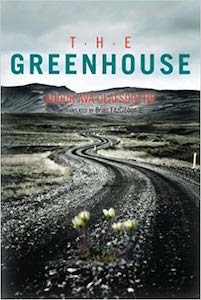
The Greenhouse by Auður Ava Ólafsdóttir, translated by Brian FitzGibbon
While Iceland is well-known for having an astonishing amount of contemporary authors, and a staggeringly literate population who supports them, it’s unquestionably the collection of medieval works known as The Icelandic Sagas that forms the foundation of the country’s reputation as a literary powerhouse. Writers across genres, from the Nobel Prize winning Halldór Laxness, whose books like the brilliant Independent People dominated the country’s bookshelves during the 20th century, to contemporary proponents of Iceland’s own flavor of Scandi Crime like Hallgrimur Helgason, to literary fiction like the recent A Fist or a Heart by KristÍn Eiríksdóttir, continue to expand the region’s offerings. One of my personal favorites of the 21st century is Auður Ava Ólafsdóttir’s The Greenhouse, translated by Brian FitzGibbon. It’s a gentle story of a young man’s emotional evolution in the wake of his mother’s death that eschews pyrotechnics in favor of genuine warmth and the wonders of the every day.
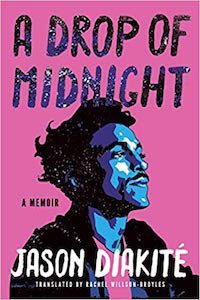
A Drop of Midnight by Jason Diakité, translated by Rachel Willson-Broyles
Another captivating Scandinavian memoir I loved is forthcoming this spring from Jason Diakité, better known as Timbuktu in the music world. Jason’s parents (his mother Caucasian American and his father African American, born in Harlem and raised in Nigeria) emigrated to Sweden in the 1970’s. Jason grew up in Lund experiencing a different kind of racism than what his family had experienced in the United States. Jason explores the landscape of American racism for himself through a journey along the route his paternal family took (and in some cases where they remain) from North Carolina through Harlem. Riveting, empathetic, and gracious, Diakité’s book is highly individual, yet tells a larger story of the African diaspora.
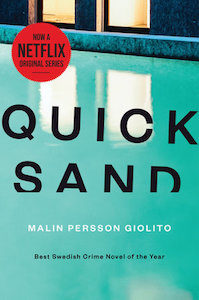
Quicksand by Malin Persson Giolito, translated by Rachel Willson-Broyles
Never underestimate the value of a fantastic translator! Great translators like Rachel are in high demand, as you can see from how often her name pops up on this list. Her tense translation of Quicksand, about a school shooting in a wealthy Stockholm suburb, had me digging my nails into my palm. Don’t read if you have anything else to do that day.
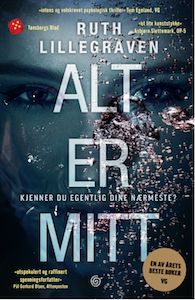
Everything is Mine by Ruth Lillegraven, translated by Diane Oatley
I was transfixed when I read Alt er mit by Ruth Lillegraven in its native Norwegian and knew it was the kind of book that would be gobbled up in English, too. A high-powered Oslo couple strives for the social and familial good in their respective jobs as an emergency room physician and a local politician focused on immigrant and children’s rights. But, as is often the case, the seeming perfection of their lives hides secrets—some of which may prove deadly. The characters, imperfect and sympathetic, grab you from the first page and simply won’t let go. I’m going to be doing an event with Ruth, who is also an acclaimed poet, at the Frankfurt Book Fair this fall—I can’t wait to meet her in person.
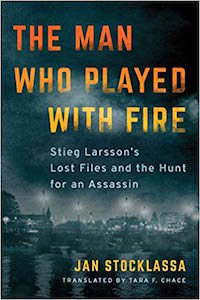
The Man Who Played With Fire: Stieg Larsson’s Lost Files and the Hunt for an Assassin by Jan Stocklassa, translated by Tara F. Chace
Not all of the crime depicted in Nordic literature is fictional! The hitherto unsolved assassination of Sweden’s Prime Minister Olof Palme in 1986 is often referred to for those in the English-speaking world as “Sweden’s Kennedy Assassination,” a case that rocked the country to its foundation and set off scores of investigations and conspiracy theories that lasted decades. Mere hours after Palme was shot as he and his wife Lisbet were walking home from the movies one evening, Stieg Larsson, then an investigative journalist, was sleuthing into Palme’s murder and the ensuing botched police investigation. Journalist Jan Stocklassa was granted access to Stieg’s archive and takes up the case where the famous novelist left off when he unexpectedly died in 2003. Stocklassa has a gang of intrepid helpers, including a very brave woman known only as Lidia, whose chutzpah in confronting a likely killer echoes that of Larsson’s Lisbet Salander. It’s even been claimed that the Olof Palme assassination is at the root of the Scandinavian obsession with crime stories—a cultural yearning to restore justice and peace.




















